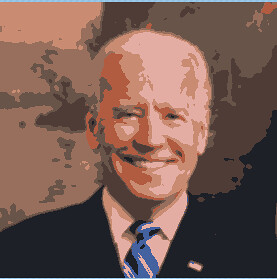Last week, Anthony Cordesman offered "Why Is Obama Ignoring Iraq?" (Real Clear World):
For all the current attention to Syria, Iraq is the larger and more important state. Iraq is a nation of 31.9 million and Syria is a nation of 22.5 million. Iraq has the larger economy: Iraq has a GDP of $155.4 billion, and Syria had a GDP of $107.6 billion in 2011, the last year for which there are useful data. Most important, Iraq is a critical petroleum state and Syria is a cypher. Iraq has some 143 billion barrels worth of oil reserves (9 percent of world reserves) and Syria has 2.5 billion (0.2 percent). Iraq has 126.7 has trillion cubic meters of gas, and Syria has 10.1. Iraq has a major impact on the overall security of the Gulf, and some 20 percent of the world oil and LNG exports go through the Gulf.
This does not mean the conflict in Syria is not tragic or that it is not important. But from a practical strategic viewpoint, Iraq divided Iran from the Arab Gulf states. Iraqi-Iranian tensions acted as a strategic buffer between Iran and the rest of the Middle East for half a century between the 1950s and 2003. Today, Iraq has s Shi'ite government with close links to Iran and is a military vacuum. Iraq's Shi'ite leaders treat its Sunnis and Kurds more as a threat than as countrymen. Its Arab neighbors treat Iraq's regime more as a threat than an ally, and the growing Sunni-Shi'ite tension in the rest of the region make things steadily worse in Iraq and drive it towards Iran.
Iraqi journalist Sahar Issa shared on The World (PRI) last Wednesday, "In the neighborhoods where people live, there is fear, there is tension. At the checkpoints? There are fake checkpoints where they ask for your name and your i.d. To tell you the truth, the situation is really quite fearful on the streets."
And Saturday brought a new kind of bombing -- dog bombing.
Iraq drifts further off the US radar. So much so that for weeks, as rumors have circulated in the Iraqi press that US Vice President Joe Biden was trying to divide Iraq into three regions, the White House has said nothing.

It took Moqtada al-Sadr calling out the plan or 'plan' from The Godfather of the Division (one of the nicknames Biden's picked up in Iraq over the last weeks) and denouncing Biden as Satan for the US government to respond. And even then, it was the US Embassy in Baghdad (finally) responding.
Wednesday, Alsumaria reported that the US Embassy in Iraq denied today media reports that Biden was overseeing Iraq being split into three sections. The embassy stated that Biden spoke to the three leaders only in attempt to help keep a political dialogue alive between the various blocs. On his phone calls, he did not raise the issue of dividing Iraq but instead stressed the need for all participants to work together to find some resolution to the crises confronting Iraq. Friday, All Iraq News reported on the denial:
The spokesman of the US Embassy Frank Finver said in a statement received by All Iraq News Agency (AIN) that "The remarks reported by some media outlets over the US Vice President Biden’s talks at the end of last week on Iraq, are absolutely groundless."
The spokesman added that "In fact, the US Vice President recently talked with Prime Minister Nouri al-Maliki, Parliament Speaker Osama al-Nijaifi and the President of the Kurdistan Regional Government Masoud Barzani and urged them to continue working together and stressed the importance of participation of all parties to find solutions to the points of disagreement within the framework of the Iraqi Constitution.”
All of the above combines to beg the question: Who is leading the US effort in Iraq? And it also begs the question how are US tax dollars being spent? Especially after Mark Thompson (Time magazine) reported last week on the $2 billion contract that the State Dept has with PAE Government Services, Inc., "That’s a million dollars a day over a five-year period, if the contract hits its ceiling. The down payment is $347,883,498 (don’t you just love such precision? It’s almost a prime number, for Pete’s sake)."
